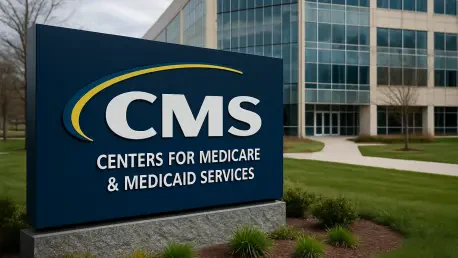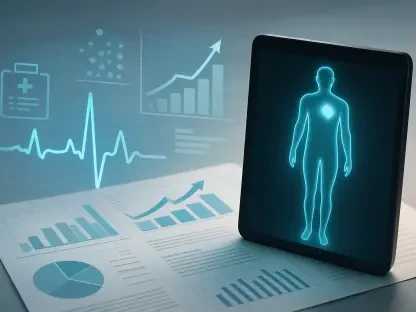In a landmark move to modernize healthcare, the U.S. Centers for Medicare & Medicaid Services (CMS) has unveiled the Health Technology Ecosystem, a federal initiative designed to overhaul the way patient health data is shared and accessed across the industry. Announced at the White House, this ambitious project aims to dismantle outdated practices like faxing medical records and filling out paper forms, replacing them with cutting-edge digital solutions. The vision is clear: foster interoperability among providers, payers, and tech vendors to create a seamless, patient-centered system. With the potential to transform care delivery through real-time data access and innovative tools like health management apps and AI-driven chatbots, the initiative sparks hope for a more efficient and responsive healthcare landscape. Yet, as this ecosystem takes shape, significant challenges around privacy, security, and implementation loom large, raising critical questions about how these hurdles will be addressed to ensure the promise of better care becomes a reality.
Driving Interoperability for a Connected Healthcare Future
The cornerstone of the Health Technology Ecosystem lies in its push for interoperability through the CMS Aligned Network, a framework designed to enable seamless data exchange among diverse healthcare stakeholders. This initiative targets the inefficiencies of antiquated systems, such as manual record transfers and paper-based processes, which often lead to delays in care and fragmented communication. By establishing a connected digital infrastructure, CMS seeks to ensure that health records are accessible in real time, allowing for quicker decision-making and better coordination between providers and patients. The elimination of barriers like fax machines and repetitive intake forms could significantly reduce administrative burdens, freeing up time for more meaningful patient interactions. If successful, this interconnected approach might redefine how care is delivered, making it more streamlined and responsive to individual needs across the healthcare spectrum.
At the heart of this interoperability effort are Application Programming Interfaces (APIs), which serve as the technical backbone for secure and instant data sharing. APIs enable patients and providers to tap into clinical information directly, facilitating the development of innovative tools that enhance care delivery. Imagine a scenario where a physician accesses a patient’s full medical history during an emergency with just a few clicks, or where a patient uses a mobile app to share vital health stats with multiple specialists simultaneously. This shift from isolated, outdated systems to a tech-driven ecosystem holds immense potential to improve outcomes by ensuring that critical data is available when and where it’s needed most. However, the transition to such a system demands rigorous standards and widespread adoption to avoid gaps in connectivity, a challenge that CMS must navigate to fully realize the benefits of this digital transformation.
Empowering Patients Through Data Control and Engagement
One of the most transformative aspects of the Health Technology Ecosystem is its emphasis on patient empowerment, addressing a long-standing gap in healthcare where individuals have often been sidelined in managing their own information. CMS leaders, alongside officials from the Department of Health and Human Services (HHS), have underscored the need to “tear down digital walls” that have restricted access to personal health data for decades. Through an opt-in participation model, patients gain the ability to decide how their records are used and shared, fostering a sense of agency that has been missing in traditional systems. This shift could fundamentally alter the dynamic between patients and the healthcare industry, encouraging more active involvement in care decisions and potentially leading to improved adherence to treatment plans and better overall health outcomes.
Beyond simply granting access, the initiative envisions a future where patients engage with their health data through user-friendly digital tools tailored to their needs. Mobile applications designed to manage chronic conditions like diabetes or obesity, for instance, could provide real-time insights and personalized recommendations, while AI-powered chatbots might offer immediate symptom assessments before a doctor’s visit. Such innovations aim to make healthcare more accessible and proactive, empowering individuals to take charge of their wellness with resources that fit seamlessly into daily life. Yet, for this vision to materialize, ensuring that these tools are intuitive and inclusive for all demographics remains a priority, as disparities in tech literacy or access could otherwise limit the reach of these empowering solutions. CMS must address these potential inequities to ensure that patient control translates into tangible benefits for everyone.
Building a Collaborative Network Across Stakeholders
The success of the Health Technology Ecosystem hinges on unprecedented collaboration among a vast array of stakeholders, bringing together over 60 tech companies, numerous healthcare providers, payers, and electronic health record (EHR) vendors under a unified goal. This diverse coalition reflects a shared commitment to modernizing healthcare through voluntary data exchange, supported by alignment with programs like the Trusted Exchange Framework and Common Agreement (TEFCA). The involvement of major players across the industry signals a collective recognition that no single entity can tackle the challenges of interoperability and innovation alone. By fostering partnerships that span public and private sectors, CMS aims to create a robust foundation for a system where data flows freely yet securely, ultimately benefiting patients through more coordinated and efficient care delivery mechanisms.
However, the inclusion of Big Tech firms in this collaborative effort introduces a layer of complexity that cannot be overlooked. While their technological expertise and resources are invaluable for scaling digital solutions, their participation raises legitimate concerns about how sensitive health information will be managed. Past controversies surrounding data handling by large technology companies amplify worries about potential misuse or commercialization of patient records. As this network of stakeholders works to build a cohesive ecosystem, establishing clear guidelines and accountability measures will be essential to maintain public confidence. Without transparent oversight, the collaborative spirit driving this initiative risks being overshadowed by skepticism, potentially hindering adoption and the broader goal of transforming healthcare through shared effort and innovation.
Navigating Privacy and Security Challenges
As the Health Technology Ecosystem promises to revolutionize healthcare with digital innovation, it simultaneously faces significant scrutiny over privacy and security risks that could undermine its objectives. Cybersecurity vulnerabilities, such as the potential for data breaches through tools like QR codes used for sharing medical histories, pose a real threat in an increasingly connected system. Compounding these concerns are past incidents, including a notable CMS data leak that exposed the information of over 100,000 beneficiaries, casting doubt on the government’s capacity to safeguard sensitive records. These issues highlight the urgent need for robust protective mechanisms to prevent unauthorized access and ensure that patient trust is not eroded as the initiative expands its reach across the healthcare landscape.
Equally pressing is the apprehension surrounding the involvement of Big Tech companies, with digital health advocates and civil rights groups warning against the monetization of personal health data for commercial gain. Critics argue that without stringent regulations, there’s a risk that sensitive information could be exploited, prioritizing profit over patient welfare. Despite assurances from federal agencies like HHS and the Office of Civil Rights (OCR) that privacy standards will remain uncompromised, skepticism persists about whether these protections can keep pace with rapid technological advancements. Striking a balance between harnessing innovation for better care and implementing ironclad security measures remains a formidable challenge for CMS, one that will likely shape public perception and the long-term viability of this ambitious data-sharing framework.
Reflecting on a Path Forward for Healthcare Innovation
Looking back, the launch of the Health Technology Ecosystem by CMS marked a defining moment in the journey toward a more connected and patient-focused healthcare system. The commitment to interoperability, patient empowerment, and stakeholder collaboration laid a strong foundation for addressing systemic inefficiencies that have long plagued the industry. Yet, the hurdles of ensuring data usability and safeguarding privacy stood as stark reminders of the complexities involved in such a sweeping reform. Moving forward, the focus must shift to actionable strategies, such as developing user-friendly tools that bridge technological disparities and establishing transparent policies to govern data use by all parties involved. Strengthening cybersecurity frameworks and fostering ongoing dialogue with advocacy groups could further help in building trust. As CMS navigates these challenges, the lessons learned offer a blueprint for balancing innovation with accountability, ensuring that the vision of a transformed healthcare landscape continues to evolve with integrity and inclusivity at its core.









